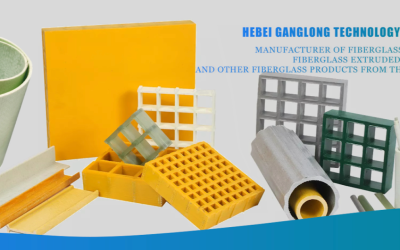Solar panels are not just for old houses; they can be built right into new homes too. Imagine your new house helping the planet and saving you money from the day you move in. This is how Soly integrates with new constructions, making it easy to include solar power in your dream home. Solar panels use energy from the sun, which is free and always there during the day. This makes your home energy smarter and much cheaper to run.
Understanding Solar Energy Basics
Solar panels capture sunlight and turn it into electricity that powers everything in your home. There are a few types of solar panels, but all work on this cool idea. The most common types are called monocrystalline and polycrystalline. These big words just mean the panels are made from different kinds of materials that affect how well they work and how much they cost. Understanding this helps you pick the right type for your new home, making sure you get the best bang for your buck.
Benefits of Solar Panels in Home Construction
Adding solar panels to your new home is a smart move. First, they can save a lot of money on electricity bills. Imagine running your air conditioner in the summer without worrying about the cost. Solar panels also make your house worth more because many buyers today want homes that are good for the environment. Plus, some governments will even give you money back for choosing solar, which is a sweet deal The Daily Mirror.
Planning and Designing for Solar Integration
When building a new home, it’s the perfect time to add solar panels. Starting from scratch allows you to plan and design your house with solar energy in mind, ensuring optimal efficiency and aesthetics. Here’s how to make the most out of integrating solar panels into your new home:
Optimal Placement
You can figure out the best place on your roof for these panels to catch the most sun. Solar panels need maximum sunlight exposure to generate the most electricity. Typically, a south-facing roof slope is ideal in the Northern Hemisphere. Work with your builder and a solar expert to determine the best angles and positions for your panels. They can use tools and simulations to find the optimal placement that maximizes sunlight capture throughout the year.
Structural Considerations
Your builder can also make sure the roof is strong enough to hold the solar panels. Solar panels and their mounting equipment add extra weight to your roof. Ensuring that your roof can support this load is crucial to avoid structural damage or failure. During the design phase, your builder can reinforce the roof structure as needed, providing a solid foundation for the panels. This proactive approach prevents potential issues and ensures the longevity and safety of your solar installation.
Aesthetic Integration
Plus, they can make the panels look good with the rest of your house, so everything looks cool and works well together. Solar panels no longer have to be bulky or unsightly. With thoughtful design, they can blend seamlessly with your home’s architecture. Your builder can use sleek, low-profile panels and color-matching techniques to integrate the system aesthetically. For example, solar shingles or tiles that mimic the appearance of traditional roofing materials can be used. This integration enhances curb appeal and maintains the design integrity of your home.
Electrical System Compatibility
Planning for solar integration includes ensuring your home’s electrical system is compatible with solar power. This involves installing appropriate wiring, inverters, and electrical panels that can handle the energy produced by your solar array. Your builder can coordinate with a licensed electrician to integrate these components during construction. This seamless integration allows for easier and more cost-effective installation, avoiding the need for significant electrical upgrades later.
Future-Proofing Your Home
Designing with solar in mind also means considering future expansions. If you plan to increase your solar capacity later, ensure your roof has enough space for additional panels. Pre-installing conduit and making space for extra inverters or batteries can simplify future upgrades. This foresight saves time and money when expanding your solar system as your energy needs grow.
Legal and Administrative Considerations
There are some rules about where and how you can put solar panels on your house. You’ll need to check with your local government about what’s okay in your area. They’ll tell you about the permits you need and how to connect your solar panels to the power grid. This way, you can even sell back extra power you don’t use, which is pretty awesome.
Financial Aspects
Solar panels cost some money upfront, but they save a lot more over time. There are different ways to pay for them, like loans or leases, which can make it easier to start. It’s a good idea to look at how long it will take for the savings on your power bills to pay back the cost of the panels. Usually, it’s quicker than you think!
Choosing the Right Solar Panel System
Choosing the right solar panels is a big deal. You want to make sure they last long and work well. There are different types of panels and some are better than others depending on your roof and where your house is. You also need to think about things like inverters, which make the electricity from the panels usable for your home. Some systems even come with batteries to store electricity for when the sun isn’t shining.
Installation Process
Getting solar panels up on your roof is a job for professionals. You’ll want to find a good company that has done this before. They will handle everything from making sure the panels are safe and secure, to connecting them properly so they start working right away. If any problems pop up during installation, these experts will know how to fix them fast.
Maintenance and Upkeep
Solar panels are pretty easy to take care of. You mostly need to keep them clean and make sure nothing blocks them from getting sunlight. Most companies that install solar panels will check them regularly to make sure they are working perfectly. This helps you get the most power from your panels all year long.
Final Thoughts
To wrap it up, solar panels are a top choice when you’re building a new home. They save you money, help the environment, and can even make your house worth more. From figuring out the best panels for your place to keeping them running great, it’s all worth it. So, when planning your new construction, seriously consider adding solar panels to the mix. Not only will your wallet thank you, but the planet will too.








